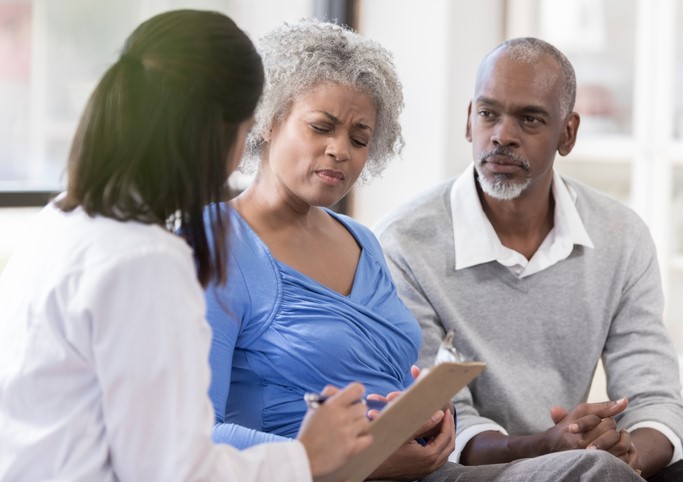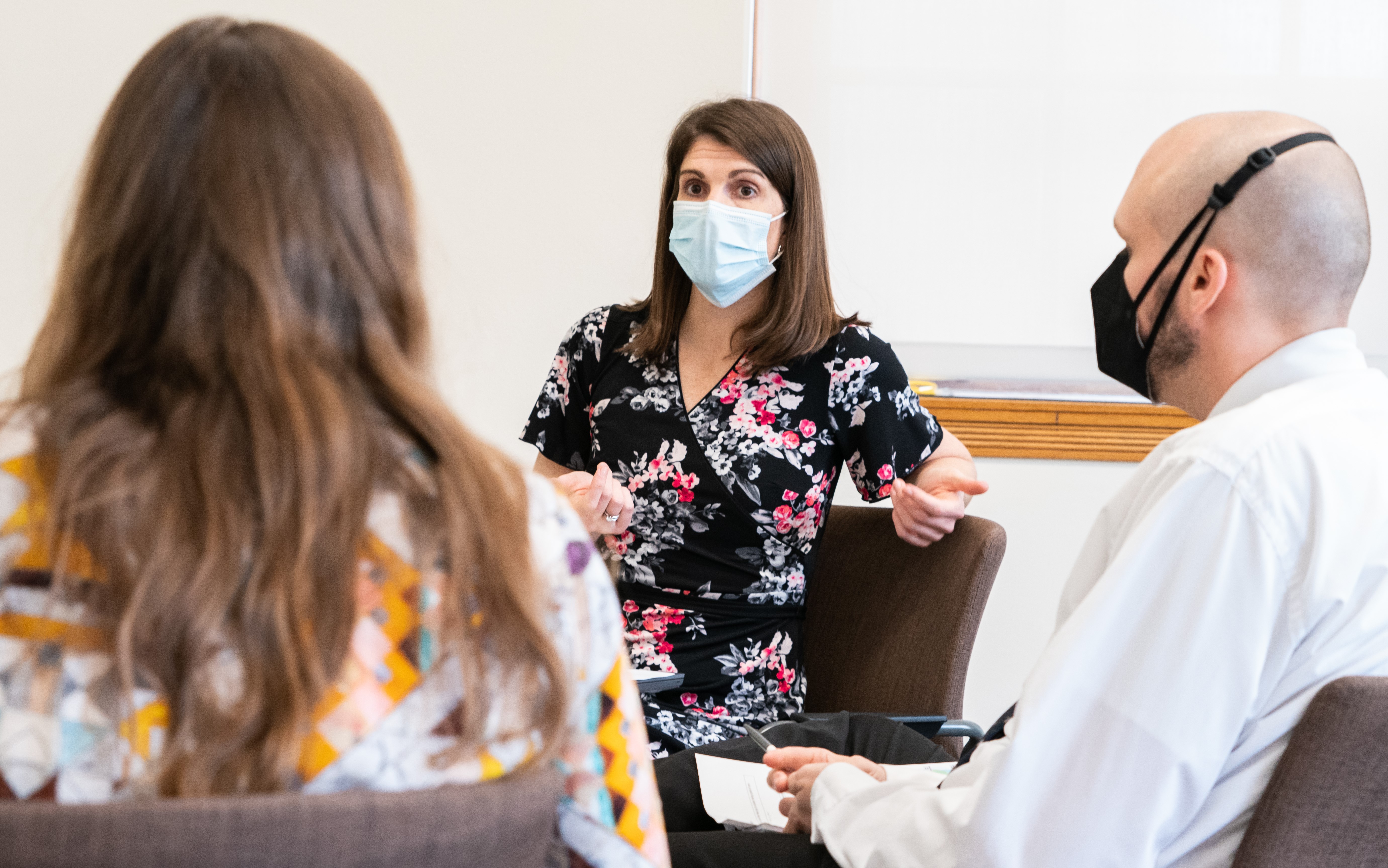TalkOregon

We believe that seriously ill Oregonians deserve to have health care professionals who can communicate compassionately about the most sensitive aspects of their medical care. Developed and directed by Katie H. Stowers, D.O., the Ronald W. Naito Director in Serious Illness Education, the TalkOregon program focuses on helping clinicians build effective skills in compassionate communication through evidence-based training and engaging patient simulations. Our goal is to improve the healthcare experience for seriously ill and aging Oregonians by empowering health care professionals with the skills needed to navigate tough conversations through compassionate communication.
Our Vision
A healthcare system where providers are skilled in patient-centered communication, use patient goals and values to guide treatment, and can engage in effective, empathetic, and honest conversations with their patients.
The TalkOregon Design
Serious illness conversations are hard, for both clinicians and patients, but learning and practicing specific skills can improve these conversations and make them more effective. The TalkOregon program is an evidence-based workshop that teaches core communications skills to help master tough conversations with patients and their families. Developed in collaboration with VitalTalk1, our program is designed for clinicians who work with seriously ill or aging patients. It's built on principles of adult learning and communication research.
Our Workshops

We've designed a recommended series of workshops to complete throughout a three-year residency program, where participants will learn and practice new skills relevant to their level of clinical experience. We offer six different workshops, where each workshop gradually increases in complexity and builds upon the skills learned in the previous course. Programs can customize their own timelines by choosing from any of these offered workshops. Each TalkOregon workshop includes:
- 3-4 hours of instruction and guided skills practice2.
- Virtual or in-person format.
- Specialty-specific roleplay scenarios with actors.
- Realtime feedback.
- Small group sizes to experiment with new skills in a safe learning space.
Workshop 1
- Sharing Information Clearly
- Recognizing and Responding to Emotions
Workshop 2
- Eliciting Values and Goals
- Making Patient-centered Recommendations
Workshop 3
- Understanding Patient Perspectives
- Navigating Uncertainty
Workshop 4
- Patient-centered Recommendations
- Late Goals of Care Conversations
Workshop 5
- Facilitating Family Meetings
- Navigating Conflict
Benefits to Formal Communication Training
Research shows major benefits to formal communication skills training. It's equally effective for clinicians of all specialties who work with seriously ill patients. It improves clinician self-efficacy in engaging in specific relationship-centered communication skills, improves the patient satisfaction level of all clinicians regardless of baseline scores, and improves clinician measures of empathy and burnout.
Clinicians also report high levels of satisfaction of communication skills training in terms of:
- Being a valuable use of time.
- Learning relevant skills to use with their patients.
- Learning feasible skills to implement in their practice.
- Changing their attitudes about their own skills and communication abilities.
- Enhancing their knowledge and skillsets.
Regional Mentorship Program
We've partnered with The Kinsman Foundation to offer a regional mentorship program to Oregon healthcare organizations outside the Portland-metro area. This 3-year, fully grant-funded program will help us mentor leaders in communication skills training, assist them in developing their own communication curriculum, and help create successful, enduring programs to help train others in compassionate communication.
Why should you train with us?
- Time and money are precious resources. Our 3-year mentorship program gives you the most benefit for your time without spending any money.
- You'll get research-backed training that will help quality improvement for your clinicians, patients, and health system while helping to reduce unnecessary waste of non-monetary resources.
- Only 10% of clinicians who complete Faculty Development Training with VitalTalk continue forward. Our 3-year mentorship solves this problem by helping put training into action.
- Course content is Powered by VitalTalk and used with their permission.
- Courses can be split into two, 2-hour sessions.
- Continuing Education Credit Statement for CME Workshops:
Accreditation: The School of Medicine, Oregon Health & Science University (OHSU), is accredited by the Accreditation Council for Continuing Medical Education (ACCME) to provide continuing medical education for physicians.
Credit: Oregon Health & Science University School of Medicine designates this live activity for a maximum of 3.75 AMA PRA Category 1 Credits™. Physicians should claim only the credit commensurate with the extent of their participation in the activity.